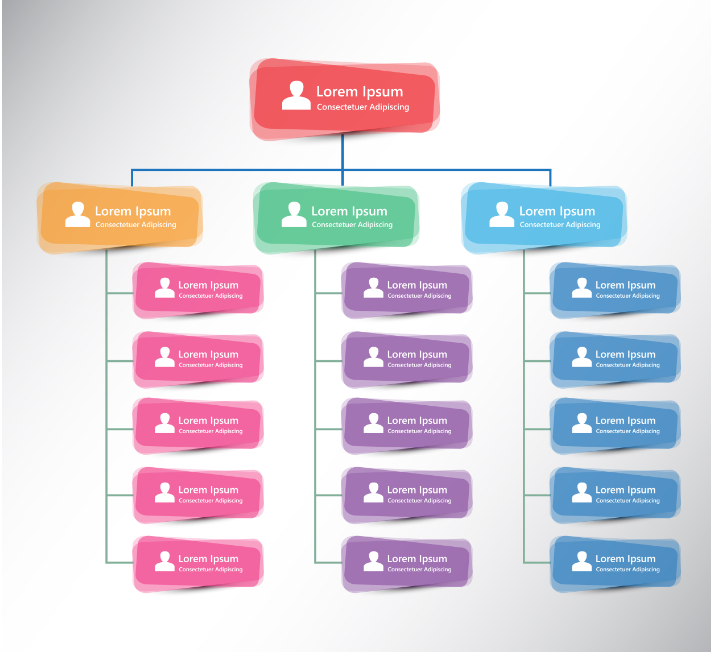As you scale your private company to its next level of sales and profits there comes a point when, systems, protocols, know-how and expertise from your existing team just won’t cut it. The evolution of a private company will always come down to these 5 basic questions:
- Is the market big enough and real?
- Can your product or service win?
- What processes are required?
- What talent is needed and what roles will they execute?
- How will I finance the next level of scaling?
To really find the answers to these questions requires a non-siloed approach. Most private companies are built on silos. That’s one of the reasons few scale beyond 20 employees or more – 10.7% of businesses to be precise (US Census Data). For you, it might be moving from $30m to $50m in Sales, or it could be growing from a $1m profit business to $5m.
Non-siloed businesses create symbiotic relationships between marketing and sales. They build metrics that require measurement not just stuff that can be exported from Quickbooks. To move from a protectionist silo type of culture requires great courage from the CEO. It requires taking a fresh look at the company. The rewards for making this jump from closed culture to open culture are enormous. They include:
- A tighter integration between dreams, strategy and execution.
- A better understanding of the market needs you are serving.
- A deeper understanding of each customers’ pressures and opportunities.
- A much stronger competitive value proposition.
- A repeatable sales process that develops less experienced sales professionals not just the experienced closers.
- A new respect for the importance of messaging and the tone of voice of the company.
- A more authentic website that speaks to who you are, is educational to your market but is also crystal clear how and why you can add value.
- The ability to see where the market is going not just where its been.
- A clearer picture of why you make money because multi-departmental metrics are used to explain the financial performance.
- An understanding of which employees have reached their limit – the trusted lieutenants.
- Quicker solutions are found because multi-departmental teams are created around priority projects.
- The value of relationships is seen as more valuable and effective than fiefdoms of meaningless power.
- A recognition that departments have internal customers that require their expertise.
Over the last ten years we have been achieving these objectives in many sectors including, technology manufacturing, software, student travel, supply chain, medical, HR & benefits and marketing services. In all cases we performed Fractional COO roles. Working closely with the CEO, one to two days per week driving change operationally. However the work always started by aligning shareholder objectives with strategy. These roles require individuals with a range of relevant skills not just finance, not just sales but a set of skills built up over decades by being exposed to multiple roles including previous CEO gigs. That kind of skill-set is difficult to find in a new CFO or CMO, or head of sales. So the Fractional COO becomes invaluable for the CEO to deploy because it addresses the silo problem. Change needs to come from within and we find these hands on roles we adopt, mimic the energy and drive of a full time executive. Managers need to see how its done close up. They don’t want to read a theoretical report!
Breaking down silos and grabbing the benefits outlined above requires know-how. We’ve codified that know-how into tools you can use in your private businesses. After ten years of working in the $10m to $100m space with clients I would summarize the following models/protocols as being key:
- Strategic Planning
- Zero based budgeting
- Product Launch Programs
- Metrics Creation and Management
- Talent Acquisition and Onboarding
- University Creation for Internal Training
- Sales Process Creation
- Sales Process Automation
- Voice of Customer Systems
- Product Management Systems
- Marketing Systems including Editorial Calendar Management
- SEO Systems
- Onboarding of Clients Protocol
- Customer Support Policies
- Open & Relevant Incentive Schemes
- Cash Flow Forecasting Systems
- Interdepartmental Alliance Structures
- Acquisition Systems, Integration and Automation
Over the coming months I’ll come back to these protocols to explain how they were created and are being maintained.
Catalysts for our engagements can vary but include:
- Desire to reset the pace of change and to achieve much higher targets.
- Desire to create much tighter alignment across departmental efforts and an awareness that silos are constraining growth.
- Recognition that the positioning and story telling is not resonating with customers like it use to.
- Need to introduce a more robust and repeatable process to buying companies.
- Timetable for exiting the business has forced shareholders to consider actions required to address dependencies (owner, customer, market).
In summary I would ask you to consider the benefits of breaking down the silo way of thinking and to consider appointing someone to help make it happen which of course could be an internal candidate with the relevant skills and temperament.
TPP is an operational consultancy that scales businesses organically and by acquisition. Every client team consists of one or more partners with successful C-Suite track records. Our biggest added value? We align effort with strategy. Scaling is not the same as sales growth. There’s more to it than that. Ian@TPPBoston.com.








